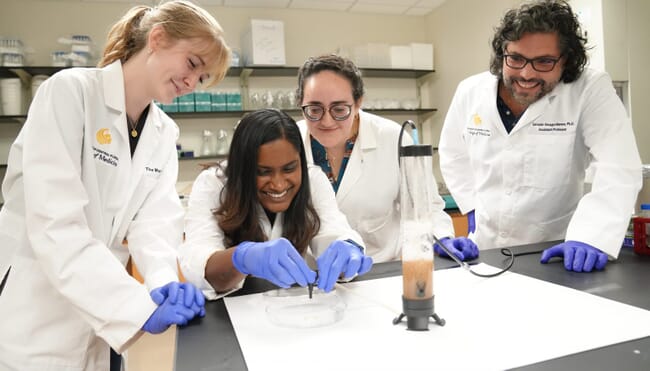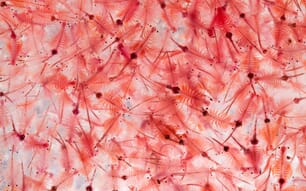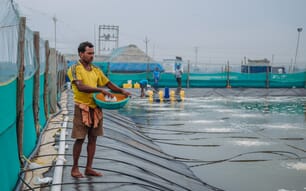
© University of Central Florida
The grant has been awarded to University of Central Florida’s Dr Salvador Almagro-Moreno and MIT’s Dr Otto Cordero, whose teams have discovered that microbes are organised in “ecological modules” that could be mixed and matched to construct microbiomes to better fight pathogens. They are working with shrimp farms in Ecuador to build new microbial communities for aquaculture that will improve shrimp health.
The UCF-MIT team is working with farmers in Ecuador, because that country is one of the top three shrimp exporters in the world. In 2022, Ecuador produced 2.34 billion pounds of shrimp, worth over $6.6 billion — with much of that seafood reaching US markets.
“Any disease can spread quickly and it’s hard to separate infected from non-infected shrimp,” Dr Almagro-Moreno said in a press release. “The effects of microorganisms on animal health and disease resistance are areas that can have a severe impact on our ability to produce foods.”
Using a fast-growing species of brine shrimp called Artemia salina, the team will test how different synthetic microbial communities increase the shrimp’s resistance to Vibrio parahaemolyticus, a pathogenic bacterium that spreads in water. Dr Almagro-Moreno compares the process to using probiotics for improved gut health, but in a more sophisticated and targeted fashion.
“It is real world application,” said Dr Almagro-Moreno, who will not only track bacterial spread but also study how to maximise shrimp production. The team hopes to help farmers learn how and why bacteria infect aquaculture farms and the best ways to prevent it.
UCF received almost $500,000 from the NSF for its work on the project. The grant will also fund a bridge programme between UCF-MIT and the National Center for Aquaculture and Marine Research in Ecuador. That collaboration will allow the US scientists to visit Ecuador to share ideas, implement new systems and bring Ecuadorian researchers to America to learn the team’s new techniques and approaches.
“Our ultimate goal is to translate these techniques to the USA’s own aquaculture production, such as oyster farms, and to eventually be able to treat and prevent human infections,” Dr Almagro-Moreno said.
Using synthetic microbiomes to prevent bacterial infections is the latest avenue for Dr Almagro-Moreno, whose work focuses on Vibrio cholerae, which causes cholera, and the flesh-eating bacterium Vibrio vulnificus found predominately on the eastern coast of Florida. His team looks at environmental factors and genetic traits to understand how harmless bacteria evolve and adapt to become infectious to humans.



